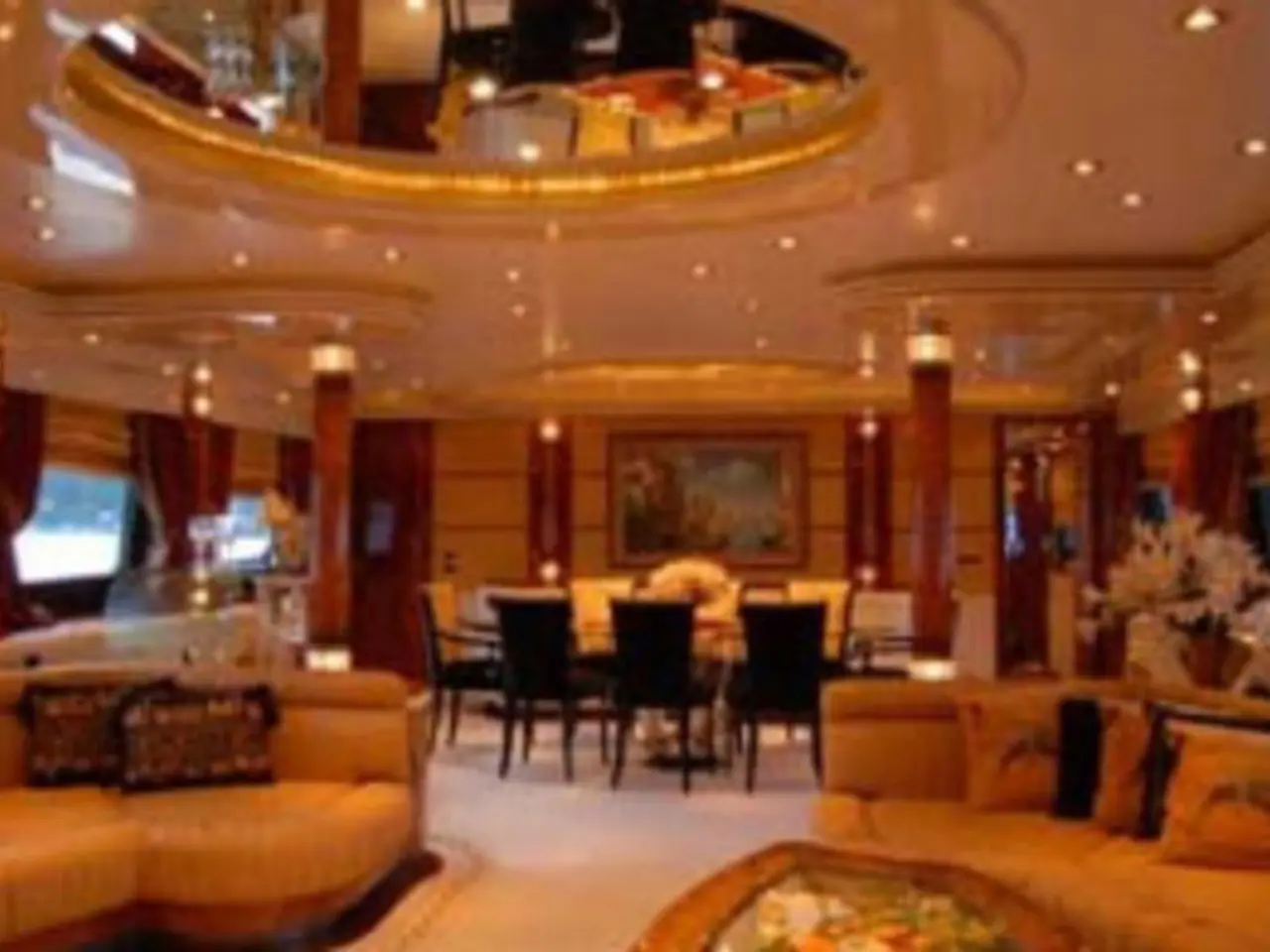European Hotels Elevate Sustainability Standards: Soaring High with Eco-friendly Practices in the Hospitality Industry
In the heart of Europe, a new wave of eco-conscious accommodations is emerging, blending comfort, sustainability, and a commitment to the environment. From Germany to Italy, these hotels are setting the bar high for sustainable hospitality.
Ahead Burghotel, nestled by the Elbe River in Germany, offers plant-based dining, a fitness center, sauna, terrace, teahouse for yoga, and a stance on comfort without compromise and sustainability baked into daily operations.
Vegan Hotel Nicolay 1881, a family-run hotel along the Moselle River in Germany, boasts three fully vegan restaurants, a generous wellness area, and the Venganico spa.
Strandhotel am Weissensee, located on the shores of Austria's highest-altitude bathing lake, Neusach, Carinthia, provides a 1,000 m2 wellness complex, saunas, relaxation zones, a rooftop terrace, and exclusively vegetarian and vegan cuisine.
Vegan Agrivilla I Pini, housed in a former farmhouse in Tuscany, Italy, offers a large garden, pool, plant-based meals, house wine, and freshly pressed olive oil. Vegan Hotel La Vimea, located in Naturno, South Tyrol, Italy, provides mountain views, access to hiking and cycling routes, a wellness area, sauna spaces, a natural swimming pond, and an entirely vegan restaurant.
Leading hotels across Europe are implementing comprehensive measures to achieve energy efficiency, water conservation, zero-waste operations, ethical procurement, plant-forward food offerings, and recognized sustainability certifications.
In energy efficiency, hotels like Radisson RED Oslo City Centre operate entirely on renewable energy, meeting verified net-zero emission standards ahead of 2040 targets. Sustainable hotels adopt measures such as wastewater recycling, water-saving fixtures, and smart monitoring to reduce water use by over 30%.
Zero-waste practices are increasingly common, including minimization of single-use plastics, comprehensive recycling programs, composting organic waste, and eliminating landfill contributions. Radisson’s Verified Net Zero hotels have eliminated plastic bottled water, substituting with glass bottles, and provide bulk bathroom amenities with recycled packaging.
Hotels focus on sourcing locally and sustainably to reduce transportation impact and support local economies. Food procurement emphasizes local, organic, and seasonal products to reduce carbon footprint and promote biodiversity. Sustainable hotels like these emphasize menus with low-carbon, plant-based options to reduce environmental impact and support healthier food systems.
Verified third-party certifications and methodologies are critical for credibility. Radisson’s Verified Net Zero status is independently verified by TÜV Rheinland, aligning with the Net Zero Methodology for Hotels. Other certifications commonly sought in Europe include LEED, GreenLeaders Platinum, and adherence to the GHG Protocol for emissions accounting.
For hoteliers, the first steps to sustainability include auditing and acting on energy and water savings, committing to plant-forward menus, cutting single-use items, measuring progress, and pursuing a label such as EU Ecolabel or Green Key. These practices not only advance environmental goals but also strengthen profitability, reputation, and guest participation in green initiatives.
These sustainable hotels in Europe integrate renewable energy, water-smart technologies, zero-waste aims backed by guest engagement, ethical local procurement, plant-forward culinary programs, and pursue rigorous third-party certification to demonstrate and verify their sustainability performance. These practices not only advance environmental goals but also strengthen profitability, reputation, and guest participation in green initiatives.




